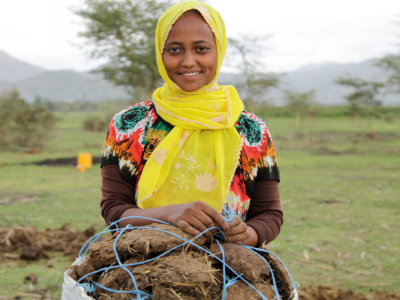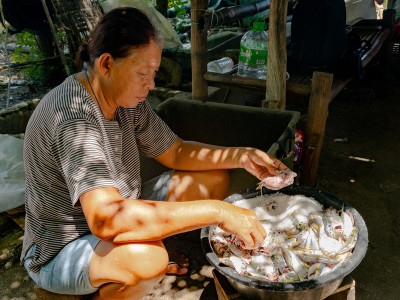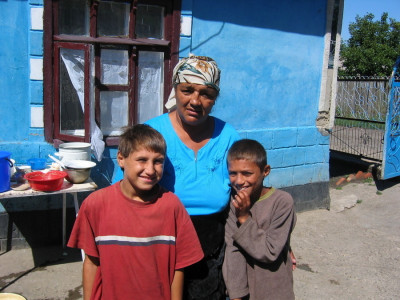Improving the livelihoods of rural women in Jilma, Sidi Bouzid with the support of the Tunisian diaspora in France
Related Sustainable Development Goals and Global Compact for Migration Objectives
Summary
This project comes from the JMDI Phase II, a UN Joint Migration and Development Initiative, run in cooperation by IOM, UNDP, ILO, UN Women, UNFPA, UNITAR which took place from 2012 to 2017 and worked to create resources and improve the standard of living of rural families by enabling rural women to access and actively engage in farming activities that generate a permanent income.
Sidi Bouzid is one of Tunisia’s most rural areas and located in the central area of the country. Agriculture and commerce are the main sectors of employment and integrate 60% of the local labour force. The production of ovine meat is an important cultural aspect of the region, which is well known and of high quality. However, due to the isolation of the region and of its urban centres, the region suffers from high unemployment rates. In Jilma, a city located in Southern Sidi Bouzid and where the project took place, the unemployment rate is particularly alarming for the youth and stands at around 45%. This has led to important internal migration to other cities in Tunisia and emigration to Europe.
Overall, the project has enhanced the livelihoods of women by supporting their integration into the local economy, with the support of the Tunisian diaspora. This was achieved through the promotion of sheep-rearing that has led to the empowerment of these women and further employment opportunities for the community. This initiative has been acknowledged at the regional level by the Governor of Sidi Bouzid as a good practice that is set to be replicated in other regions.
Key objective
The main objective of this project was to create resources and improve the standard of living of rural families by enabling rural women to access and actively engage in farming activities that generate a permanent income.
Main activities
The key activities implemented during this project are outlined below:
- Training, coaching and support workshops were organised for the benefit of ADG members in Tunisia.
- Training sessions in communication, project management, governance, financial management, leadership, and funding were also organized.
- Close links with local authorities so that they could contribute to the project were established.
- The close relationship formed led several national and local authorities to become involved as project partners.
- The T2RIV Association planned to create and support an agricultural development group (ADG).
- Ensuring implementation of project actions on the ground.
- Closely supporting the women beneficiaries.
- Interacting with the main public actors and associations working in the agricultural field.
- Two types of groups were created to facilitate the coordination of actors directly involved in the implementation of project actions, and also were likely to have a positive impact on the process.
Key successes or innovative factors, good practices and lessons learned (if available)
Key lessons learned outline that:
- The participation of local actors representing civil society and public administrations is key to the success of projects initiated by the diaspora.
- The diaspora’s contributions are not solely economic, as they can also have a social, cultural or even institutional impact.
- The establishment of a public body responsible for project support fosters the engagement of the diaspora.
- The approach adopted by the diaspora must be capable of adapting to the reality on the ground.
- The participation of local actors representing civil society and public administrations is key to the success of projects initiated by the diaspora.
- The diaspora’s contributions are not solely economic, as they can also have a social, cultural or even institutional impact.
- The establishment of a public body responsible for project support fosters the engagement of the diaspora.
- The approach adopted by the diaspora must be capable of adapting to the reality on the ground.
Beneficiaries
The main objective of this project was to create resources and improve the standard of living of rural families by enabling rural women to access and actively engage in farming activities that generate a permanent income.


